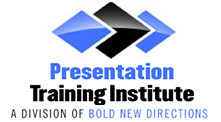For most of us, giving a presentation is not on our list of “Favorite Things to Do.â€Â In fact, most people loathe the idea of presenting in front of a group. The main reason people are so leery of presenting is due to lack of experience. Like anything else, the more experience we have with something the better we become. When it comes to presentations, there is no better way to enhance your skills than through practice and peer assessments. Peer assessments are valuable because they provide honest and immediate feedback that can be used to enhance your presentation skills. Here are just a few of the reasons peer assessments can improve presentation skills.
You Know How Well You Reached Your Audience
The purpose of any presentation is to deliver information. In many cases, once a presentation is over the presenter has no idea how if they accomplished this goal. Peer assessments give the presenter an opportunity to receive feedback about how well they presented the content. It gives the presenter a chance to see how much of the information was retained and what information was missed. This feedback is so important because it allows the presenter to clarify information that was confusing and elaborate on information that might have been missed. They can make improvements to their presentation before delivering it to the actual audience.
It Helps You Engage with Your Audience
Aside from the content itself, the most important part of any presentation is the delivery. No matter how knowledgeable you are on a topic, the audience will get nothing out of your presentation if they aren’t engaged. Peer assessments allow the presenter to get honest feedback about how interesting, compelling, and engaging their presentation was. This will help them to give their presentation the boost it needs to be dynamic.
It’s Great Practice
There is truth behind the old adage that “practice makes perfect.â€Â When you present in front of peers, it allows you to work out some of those presentation jitters. It gives you the chance to speak in front of an audience and get some much needed experience. The best speakers didn’t just walk on stage the first time and nail it. They got where they are through a great deal of practice.
It Help You Focus on Your Body Language
Most people are so concerned about what they are going to say that they forget all about their body language. However, studies have shown that our body language is just as important in communication as the words we speak. It is important to maintain eye contact, speak with your chin up and shoulders back, and avoid pacing and fidgeting. These behaviors can be a distraction and can cause audiences to doubt your competence. Peer assessments can make us more aware of our body language and how it is being perceived by an audience.
We Can Learn From Each Other
Peer assessments are most valuable when they are performed on each other.  It isn’t enough to ask your friends and colleagues to assess your presentation alone. Ask if you can do the same for them. When we evaluate each other, we are given a unique opportunity to learn from each other. Peer assessments facilitate a shared learning process in which all parties feel safe to give and receive more in-depth critiques.
